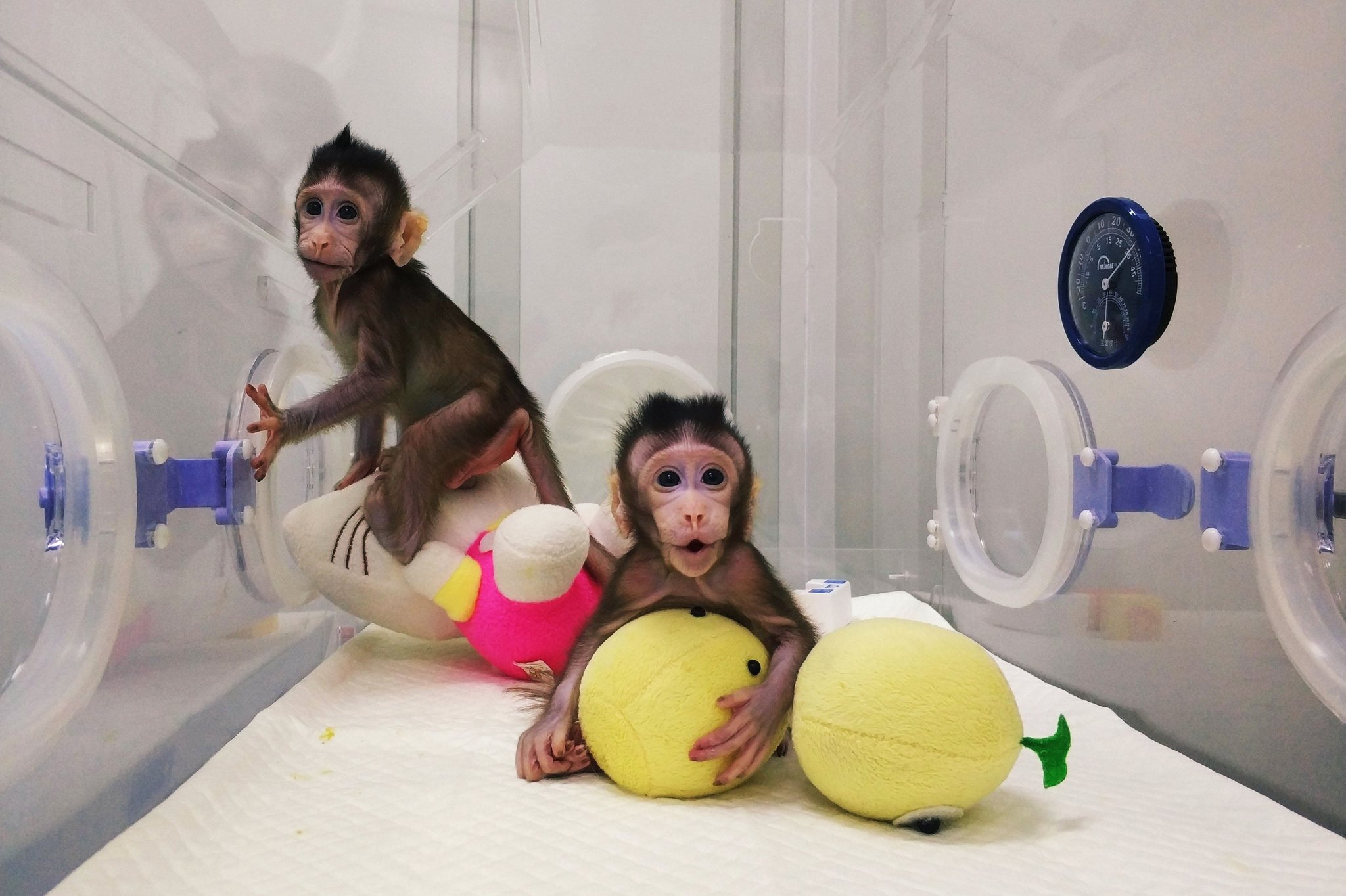On Wednesday, Chinese researchers reported that they have successfully cloned two monkeys, making it a first
The two long tailed macaques were made using the technique that produced Dolly the sheep 20 years ago and were named Zhong Zhong and Hua Hua. They were made from fetal cells that were grown in a petri dish.
The two monkeys are identical twins and carry the DNA of the monkey fetus from which the cells were taken in the first place. They came into this world at the Chinese Academy of Sciences in Shanghai.
Looking back, Dolly the sheep was produced from cells that had been frozen for six years. Until that very moment, researchers hadn’t been confident in the method, arguing that this type of cloning was not possible, because it involved taking adult cells and bringing them back to their original state, when sperm first fertilized the egg.
However, once it was proven possible, researchers quickly began improving their method and testing it on other animals. Since Dolly was created, researchers have cloned 23 mammal species that include cats, deer, dogs, rabbits and cattle.
However, the new monkey clones are more special. “It’s the first primate ever to be cloned,” said Dr. Leonard Zon, director of the stem cell program at Boston Children’s Hospital. “We are closer to humans than we’ve ever been before.”
“That raises questions of where we would want to go,” he added.
On the other hand, similar initiatives occurred back in 2007, when Shoukhrat Mitalipov and his colleagues removed skin cells from a 9-year-old macaque and inserted them into eggs from which the original DNA had been taken.
The researchers started their work by taking cells from an aborted female monkey fetus. From these, they created 149 early embryos from which 79 survived in the lab, healthy enough to transfer into the uteruses of surrogate mothers.
Four surrogates remained pregnant, yet only two live births took place after the other two miscarried.




